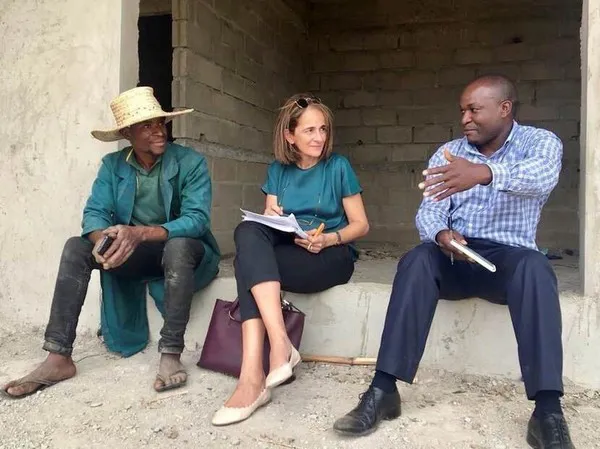The horticulture sector is the fastest growing industry within Tanzania’s agricultural sector, with an annual average growth rate of 11%. Exports have increased steeply in the past decade, and the Tanzania Horticulture Association (TAHA) expects this to grow further to reach a value of US$ 1.85 billion by next year (2021). It is crucial for the horticulture Technical and Vocational Education and Training (TVET) colleges to educate a practical, entrepreneurial workforce that has what it takes to find work in the ever-modernizing industry.
A new generation of graduates that understands how to apply new and sustainable business models in horticulture, to be able to make a transition towards a resilient and circular food system in Tanzania in the years to come. To this effect the Orange Knowledge Programme (OKP) project “Strengthening skills and training capacity in the horticulture sector” was started.
The two lead partners in the project: the Dutch Maastricht School of Management (MSM) and the Tanzanian National Council for Technical Education (NACTE) explained that the project’s geographic focus is a complex one: capacity needs to be strengthened at three Diploma-level horticultural TVET colleges that are situated throughout the country. Horti Tengeru college in Arusha covers the north of the country, Mati Uyole college in Mbeya is located in the centre of the Southern Highlands, and Mahinya college is situated in Songea, in the deep south. The OKP project partners are aware that to achieve these ambitions for resilient and sustainable circular horticulture, it will need to work with a wide range of relevant actors and stakeholders. For this reason, it invited Sokoine University of Agriculture (SUA), Tanzania Horticultural Association (TAHA), the Southern Agricultural Growth Corridor of Tanzania (SAGCOT) and Dutch private sector to be part of its consortium.

Listening to the future employers
Shortly after the kick-off of the program, representatives of MSM and NACTE carried out an in-depth labour market needs assessment in and around Arusha. An additional 20 company field visits and interviews were held in these areas. Findings of the labour market needs assessment provided good overall insights in the existing gap between the colleges on the one hand and the industry on the other.
“All industry players agreed that the number one reason that holds back growth of the horticulture industry is the lack of skilled graduates that can be hired as staff.”
Through structured interviews the project team identified the top-3 general competencies that, according to the industry, make a skilled graduate:
- Farm management skills;
- Negotiating skills;
- Skills to understand how markets and contracts work.
The top-5 technical subjects that came up as most crucial for graduates to master are:
- Soil types and cultivation;
- Seed and its key features;
- Fertilization and crop nutrition;
- Crop protection and IPM;
- Nursery management, harvest and post-harvest.
Educating a horticulture workforce for the future
The horticulture sector is said to be the fastest growing industry within Tanzania’s agricultural sector. Over the past 20 years the industry saw growth of medium and large-scale investors operating independently and by integrating with small-scale contract farmers. COVID-19 will however have an impact on horticulture production, processing and trade and its effects on the sector are yet to be known and understood.
Regardless the impact of COVID-19, what remains crucial is for the horticulture TVET colleges to educate a practical, entrepreneurial workforce that has what it takes to find work in the ever-modernizing industry, or with the right skillset and attitude to enter the industry as entrepreneurs. A new generation of graduates that understands how to apply new and sustainable business models in horticulture, to be able to make a transition towards a resilient and circular food system in Tanzania in the years to come. One that combines horticulture business with preservation of nature, climate change, and the future of rural farming communities.
Combining expertise of Dutch and Tanzanian project partners
Each of the project partners is equipped with specific knowhow on how to incorporate circular and resilient horticulture principles in the education program. It is the project’s goal to train college students in gaining competencies with which they see horticulture as being part of a broader natural system, that preserves healthy soils, efficiently uses water and raw materials, halts the decline in biodiversity, and helps the Tanzanian agriculture sector to fulfil commitments to the Sustainable Development Goals (SDGs) for 2030.
For the full article on Agroberichtenbuitenland, please click here.
